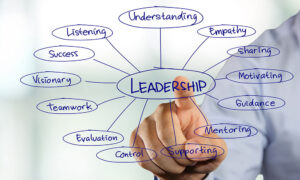Communication is the backbone of every relationship, every interaction, and every success story. Whether it’s in the workplace, with friends and family, or in larger social settings, effective communication shapes the way we understand and engage with the world around us. It’s a tool we use every day, consciously or unconsciously, to exchange information, express emotions, and connect with others.
But why is communication so crucial? In a world that is increasingly interconnected, where we constantly interact with people from diverse backgrounds and cultures, communication serves as the bridge that links us.
In this blog, we’ll explore the importance of communication in various contexts and why it is so vital for creating understanding, collaboration, and growth.
The Power of Effective Communication
Effective communication is a skill that is fundamental to success in all areas of life. Whether you’re trying to collaborate with a team at work, maintain a healthy relationship with your partner, or interact with strangers in a social setting, communication plays a key role.
When communication is clear, open, and respectful, it creates an environment of trust and understanding. It enables us to share our thoughts, ideas, and feelings in ways that others can comprehend and appreciate.
1. Building Strong Relationships
One of the most significant benefits of good communication is its ability to foster strong and meaningful relationships. When we communicate effectively, we are able to connect with others on a deeper level. This connection builds trust and empathy, which are the foundations of strong relationships.
Whether it’s in the workplace, at home, or among friends, clear and open communication allows us to express our needs, understand the needs of others, and address any conflicts or misunderstandings that may arise. It provides the tools for both individuals to navigate challenges together and work towards common goals.
2. Promoting Understanding
Effective communication fosters understanding between people. In any conversation, the goal is not just to speak but to make sure the message is accurately received. When communication is unclear or lacking, misunderstandings occur. These misunderstandings can lead to frustration, conflict, and even long-term damage to relationships.
Being able to articulate your thoughts and emotions clearly allows others to see your perspective. At the same time, active listening ensures that you are also understanding the other person’s viewpoint. This mutual understanding is key to resolving conflicts, forming partnerships, and maintaining healthy relationships.
3. Enhancing Workplace Collaboration
In the workplace, communication is an essential tool for achieving success. Whether you’re working on a team project, communicating with clients, or collaborating with colleagues, effective communication is key to productivity and performance. Teams that communicate well are more likely to collaborate efficiently, solve problems creatively, and meet their goals.
Clear communication in the workplace also helps in preventing errors, managing conflicts, and aligning everyone with the organization’s goals. When employees understand what is expected of them and can communicate any challenges or needs, the overall work environment improves.
4. Supporting Personal and Professional Growth
Communication also plays an integral role in both personal and professional development. Being able to communicate well gives you the ability to express your ideas and ambitions to others, whether it’s during job interviews, in networking situations, or when seeking mentorship.
In personal relationships, communication helps you express your feelings, desires, and boundaries, which leads to more fulfilling and respectful interactions. Professionally, good communication allows you to advocate for yourself, share your achievements, and collaborate with others in a way that boosts your career prospects.
The Impact of Poor Communication
While effective communication has numerous benefits, poor communication can be detrimental to relationships and productivity. Miscommunication, lack of clarity, and failure to listen can cause tension, confusion, and even conflict.
1. Misunderstandings and Conflict
When communication is unclear, misunderstandings can occur, leading to conflict. People may misinterpret your words, body language, or intentions. This can result in feelings of frustration, anger, and even resentment. Miscommunication is often the root cause of many workplace conflicts and personal disputes.
By being mindful of your communication style and ensuring clarity, you can prevent such issues from arising and avoid unnecessary conflicts.
2. Lost Opportunities
In both personal and professional settings, poor communication can lead to missed opportunities. For instance, in the workplace, if you cannot express your ideas or collaborate effectively with others, you may miss out on promotions or new projects. In personal relationships, failure to communicate your desires or feelings may result in unmet needs and dissatisfaction.
Effective communication allows you to express yourself clearly, ensuring that you are heard and that opportunities come your way.
3. Decreased Productivity and Teamwork
In a team environment, poor communication can hinder collaboration and reduce productivity. Without clear communication, individuals may not understand their roles or expectations, leading to confusion and inefficiency. Teams may also struggle with problem-solving and decision-making, as they are not communicating effectively or sharing ideas.
In contrast, good communication in teams promotes transparency, smooth coordination, and more successful outcomes.
How to Improve Communication Skills
Improving communication skills can take time and effort, but it is an invaluable investment in both your personal and professional life. Here are some practical strategies to enhance your communication:
1. Active Listening
Effective communication isn’t just about talking – it’s about listening. Active listening involves fully concentrating on what the other person is saying without distractions or interruptions. It shows respect for the speaker and ensures that you understand their message.
To improve your listening skills, maintain eye contact, nod in agreement, and avoid interrupting. Summarise or reflect on what the other person has said to confirm understanding.
2. Be Clear and Concise
Clear communication is essential to avoid misunderstandings. When speaking, try to express your message in a straightforward and concise manner. Avoid rambling or using jargon that might confuse the listener. Stick to the main points and present them in a logical order.
Being clear also involves being honest and transparent in your communication. If you don’t understand something, ask for clarification. If you need help, be open about it.
3. Nonverbal Communication
Nonverbal cues, such as body language, facial expressions, and gestures, convey a lot of information. Pay attention to your body language and ensure it aligns with the message you’re trying to convey. Similarly, be aware of others’ nonverbal signals to better understand their feelings and intentions.
4. Be Empathetic
Empathy is an essential aspect of effective communication. Put yourself in the other person’s shoes and try to understand their emotions and perspective. Empathetic communication builds trust and helps resolve conflicts with care and sensitivity.
5. Provide Constructive Feedback
When giving feedback, be specific, constructive, and solution-focused. Rather than focusing on what went wrong, offer suggestions for improvement and praise what was done well. Positive feedback reinforces good behaviour and motivates the recipient to keep improving.
Conclusion
Communication is one of the most powerful tools we have in our personal and professional lives. By improving communication skills and fostering clear, open, and respectful communication, we can create stronger relationships, avoid misunderstandings, and promote understanding.
Effective communication enables us to connect with others, solve problems, and grow together, whether in the workplace, with friends and family, or in any social interaction.
Good communication is a skill that can always be improved. With practice, self-awareness, and a willingness to listen and learn, anyone can become a better communicator and unlock the true power of connection.
NextEdge Learning is the top resource to fid online courses and work on your skills.
FAQs
1. What are the main types of communication?
The main types are verbal communication, nonverbal communication, written communication, and visual communication.
2. How can I improve my communication skills at work?
You can improve by practicing active listening, providing clear and concise messages, and offering constructive feedback.
3. Why is communication important in personal relationships?
It fosters understanding, strengthens bonds, resolves conflicts, and helps meet emotional needs.
4. How can I be a better listener?
By focusing on the speaker, maintaining eye contact, and asking clarifying questions, you can become a better listener.
5. Can communication skills be learned?
Yes, communication skills can be developed and refined through practice and mindfulness.


